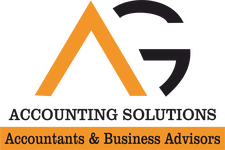As a small business owner in the UK, it’s important to have a solid tax planning strategy in place to ensure that you are making the most of available tax relief options and minimizing your tax liability. In this blog post, we will outline some tax planning tips for small business owners in the UK.
Keep Accurate Records
Keeping accurate records is crucial for effective tax planning. You should maintain records of all income and expenses, including receipts and invoices. This will make it easier to claim all allowable expenses and ensure that you are not overpaying tax.
Claim All Allowable Expenses
There are many allowable expenses that you can claim as a small business owner, including rent, utilities, and office supplies. You should take the time to research all available expenses and ensure that you are claiming all that are applicable to your situation. This can help to reduce your taxable income and lower your tax liability
Plan Your Capital Expenditures
Capital expenditures, such as equipment purchases, can be deducted from your taxable income over a period of time. You should plan your capital expenditures carefully to ensure that you are taking advantage of available tax relief options. For example, you may be able to claim the Annual Investment Allowance, which allows you to deduct the full cost of qualifying equipment purchases from your taxable income.
Consider Incorporation
Incorporating your small business can offer a number of tax benefits, including lower corporation tax rates and increased flexibility in structuring your finances. However, incorporation also comes with additional compliance requirements, so it’s important to seek professional advice before making a decision.
Utilize Pension Contributions
Pension contributions are a tax-efficient way to save for retirement while also reducing your tax liability. As a small business owner, you may be able to make contributions to a personal pension plan or a self-invested personal pension (SIPP). You should speak to a financial advisor to determine the best pension options for your situation.
Take Advantage of Research and Development Tax Relief
If your small business is involved in research and development, you may be eligible for Research and Development (R&D) tax relief. This relief allows you to claim a deduction for qualifying R&D expenses, or to receive a tax credit if you have made a loss. You should speak to a tax professional to determine if you are eligible for R&D tax relief.
Plan Your Timing
Timing can be an important factor in effective tax planning. For example, you may be able to reduce your tax liability by deferring income until the following tax year, or by accelerating expenses into the current tax year. You should speak to a tax professional to determine the best timing strategies for your business.
Seek Professional Advice
Finally, it’s important to seek professional advice when it comes to tax planning. A qualified tax advisor can help you to navigate the complex UK tax system and identify the best tax planning strategies for your small business. They can also help you to stay up to date with changes in tax law and ensure that you are compliant with all relevant regulations.
In conclusion, effective tax planning is crucial for small business owners in the UK. By keeping accurate records, claiming all allowable expenses, planning your capital expenditures, considering incorporation, utilizing pension contributions, taking advantage of R&D tax relief, planning your timing, and seeking professional advice, you can ensure that you are making the most of available tax relief options and minimizing your tax liability.
